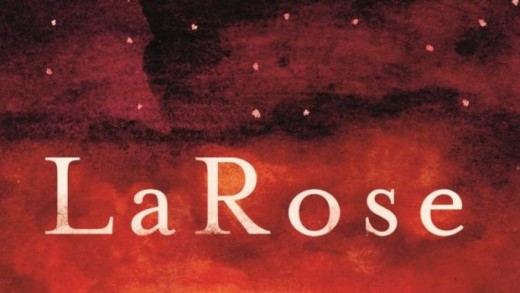You have no items in your cart. Want to get some nice things?
Go shopping
Like how the Native American Ojibwe people might weave a bag using thread, Louise Erdrich, in her new novel, LaRose, intertwines the use of simple prose and multi-vocal story telling to create a vibrant and compelling narrative.
Erdrich’s novels have transformed the landscape of contemporary American literature by illuminating the lives of Native Americans. LaRose is her 15th novel and she continues to enlighten with the verisimilitude of her characters and the richness and depth of her setting. She creates a captivating view of an unfamiliar America, which has been stated to be equipollent with Faulkner.
LaRose is set in North Dakota, in the Native American Ojibwe territory. The book begins with Landreaux Iron hunting a deer, but accidentally shooting and killing his neighbour’s five-year-old son, Dusty Ravich. This leads to a profound attempt at repentance, an ancient Native American tradition of atonement, for Landreaux to give a child of his own to the parents of the dead child. This comes in the form of his youngest son, LaRose.
With such a powerful start to the novel, there is a wonder where this story will go. The journey is one of complexity and, although Erdrich’s prose is beautifully plain, she masterfully ties together the many strands laid out. One of the strands expands to a family ancestor, a captivating tale of a girl, the first of five generations of LaRoses, who is sold and abused, before being sent to a boarding school to be assimilated into the culture of the Whiteman. There is something unique about family members named LaRose and Erdrich explores this with powerful Native American imagery, spirituality and symbolism, creating a blunt contrast to the illustrations of contemporary American culture.
One of Erdrich’s stronger male characters, drug-addled Romeo, is absorbed in taking revenge against Landreaux, for reasons unrelated to Dusty’s death. This provides a fascinating glimpse into the childhoods of some of the present adult characters. Romeo is also featured in one of the unexpected comical scenes in the book, where he steals medication from the Elder’s lodge and finds himself duped, by the older tribal residents, into taking a questionable concoction of drugs.
Other characters, such as LaRose’s two teenage sisters, are not as remarkable due to their high-achieving, athletic and academic perfection; however, they provide a pleasant contrast and salvation for Erdrich’s most intriguing character, Maggie, the older surviving sister of Dusty. Maggie’s response to LaRose as her new brother and her role in her mother’s desperate hold onto mental stability stands out even against the brightest of Erdrich’s characterisations.
Whilst delving into themes of revenge, justice, forgiveness and love, LaRose also considers darker social themes, such as the departure of the middle class, the pernicious effects of racism, forced assimilation, adultery and sexual violence. Erdrich has developed many of her female characters as resilient in the face of adversity, but has also given them profound weaknesses, which furthers the story’s intriguing character-driven nature.
Erdrich’s poetic language is incredibly visceral: “I am a broken animal, she whispered.” “Curled underneath the bus seat…He dozed off…He did not wake when the bus stopped, when all of them got off. He did not wake when they shaved his head for lice and left him in the shower while they found him new clothes without bugs. Not even in bed that night, the next morning either, did he wake. He never woke up. He was still sleeping on that bus.”
It is clear that Erdrich’s talent is in how she tangles the two families together and how she blends darker themes with humour. However, for such a delicately composed novel, some of the humour was too stark. Furthermore, the conclusion precariously teeters on the side of a saccharine daytime drama. Nevertheless, LaRose’s breadth and intelligence overshadows any of its limitations. It is a novel that has everything one could ask for: tragedy, comedy, revenge, adventure, atonement, and forgiveness. LaRose is a delicate, unassuming masterpiece and Erdrich is certainly one of the greatest American writers of our time.

About Anna Manson
Anna Manson is a published short story writer. Her short stories, The Disgarded Ragdoll and Daisy Train, have been published by Writers' Forum Magazine and her other short story, Demons and Lollipops, has been published on Litro Online. She enjoys reading and reviewing books when she is not working on her first novel




